Keynote Speakers
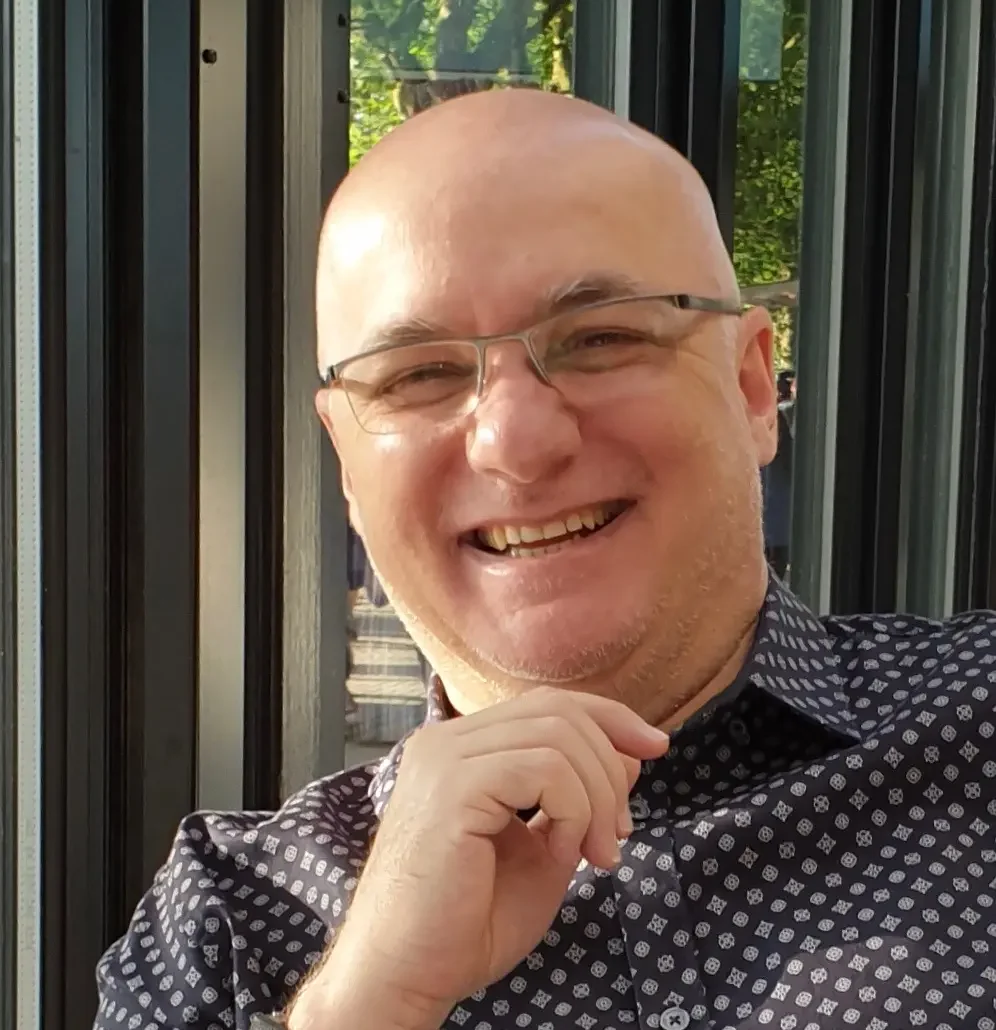

Peter Triantafillou
Machine Unlearning: An Emerging Fundamental Component of ML Pipelines
- Towards Unbounded Machine Unlearning, NeurIPS 2023;
- Machine Unlearning in Learned Databases, SIGMOD 2024;
- To Each (Textual Sequence) Its Own: Improving Memorized-Data Unlearning in Large Language Models, ICML 2024;
- What makes unlearning hard and what to do about it, NeurIPS 2024.
Professor, University of Warwick
Peter Triantafillou is a Professor of Data Systems and Head of the Data Sciences and Machine Learning Theme at the Department of Computer Science at the University of Warwick. He co-led the PVLDB Reproducibility effort (2018-2023), has been a Fellow of the Alan Turing Institute (2018-2023), a member of the Advisory Board of PVLDB (2019-2023), a member of the Advisory Board of the Huawei Ireland Research Centre (2020-2021) and an Associate Director of the Urban Big Data Research Centre (a national infrastructure for urban data services and analytics). Peter has held professorial positions at the University of Glasgow, the University of Patras, the Technical University of Crete, and Simon Fraser University, and held visiting professorships at the Max-Planck Institute for Informatics (2004-2005 and 2012-2013). Peter received his PhD in computer science from the University of Waterloo and was the Department of Computer Science and the Faculty of Mathematics nominee for the Gold Medal for outstanding achievements at the Doctoral level.
Peter’s papers have won numerous awards, including the most-influential paper award in ACM DEBS 2019, the best paper award at the ACM SIGIR 2016 Conference, the best paper award at the ACM CIKM Conference 2006, and the best student paper award at the IEEE Big Data 2018 Conference. Peter has served in the Technical Program Committees of more than 150 international conferences and has been the PC Chair or Vice-chair/Associate Editor in several prestigious conferences (including ACM SIGMOD, IEEE ICDE, PVLDB Reproducibility, IEEE DSAA, ACM Middleware, Wise). Currently, Peter is serving as the Ceneral Co-Chair for VLDB 2025.
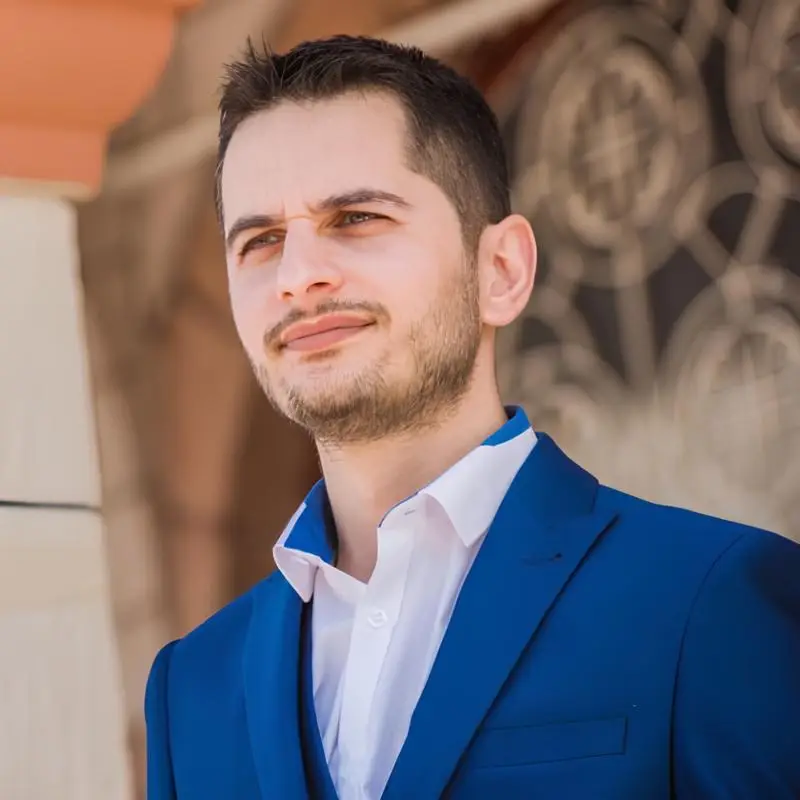
Nikos Ntarmos
Next-generation AI-integrated cloud-native databases
Huawei’s vision is a fully connected, intelligent world. To achieve this, data systems play a fundamental role as key enablers and a core building block of several services and products. As data volumes and model complexity scale exponentially, the architectural boundaries between databases, AI engines, and cloud infrastructure are dissolving. This talk explores the future of AI-integrated databases as composable, cloud-native systems engineered for intelligent automation, real-time inference, and high-throughput distributed processing. We will dissect the core architectural shifts enabling this transformation, including embedded ML operators within query engines, native support for vector and graph representations, and integration of AI models and pipelines directly into transactional and analytical workflows.
Technically, the talk will map the evolution from monolithic database management systems to stateful, modular architectures capable of workload-aware elasticity, cross-region learning, and fine-grained multi-tenant execution. We will also discuss the implications of hardware heterogeneity and serverless AI for future data systems.
Ηonorary Lecturer, University of Glasgow | Director of Database Lab, Huawei Technologies
Nikos Ntarmos is the Director of the Database Lab at Huawei’s Edinburgh Research Centre, where he leads a team of researchers and engineers working on designing and implementing next generation database management systems, for environments ranging from smartphones/tables to routers/switches and to big-iron servers and the cloud. His research interests lie in the areas of distributed computing and (large-scale) data management systems, with a focus on issues pertaining to storage and indexing, as well as query processing and optimization, in embedded databases, distributed data stores, multi-model databases, and joint at-rest/streaming data processing systems.
Nikos has published more than 50 papers in top-tier data management venues, and was a recipient of the best paper award at the ACM CIKM 2006 conference and the best student paper award at the IEEE Big Data 2018 conference. He has served in the Program Committees of multiple international conferences (including VLDB, ACM SIGMOD, IEEE ICDE, EDBT, ACM/IFIP/USENIX Middleware, IEEE CCNC, etc.). Nikos is a member of the IEEE and the ACM, and a Fellow of the UK Higher Education Academy. Before joining Huawei, he held academic posts at the University of Glasgow and the University of Ioannina, and research fellow posts at the University of Glasgow and the University of Patras.

Session Speakers
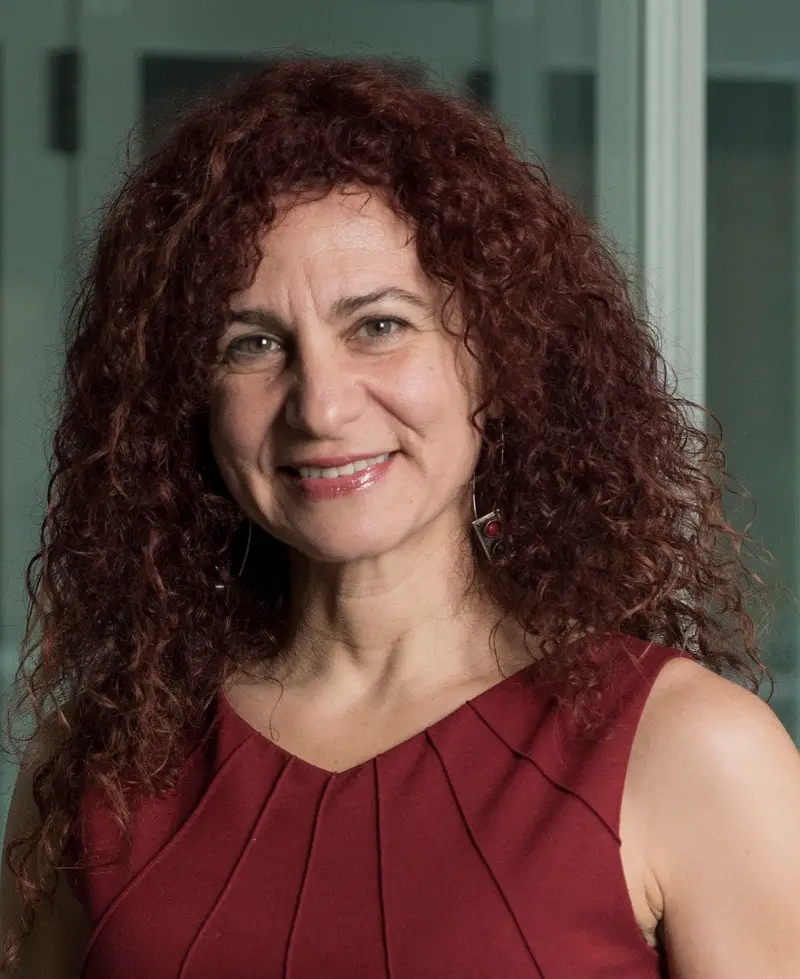

Anastasia Ailamaki
The New Memory Wall and how it changes database system design
To bridge the ever-growing memory-processor speed gap (aka the “memory wall”), computer architects introduce new levels of caching that trade capacity for speed, and database designers develop cache-aware query processing algorithms since the late 1990s. Nowadays distributed query processing on the cloud is the norm; memory resources grow increasingly heterogeneous and disaggregated, mitigating the benefit of cache-aware query processing techniques. Recently, in contrast with traditional CPU-centric architectures, “memory-centric” systems that use memory pooling attract interest but also raise significant challenges as data move in unpredictable ways along a multi-dimensional memory hierarchy.
Therefore, data movement emerges as a key performance bottleneck as it incurs a major cost in distributed query processing. In this talk, I will discuss the new memory wall and the challenges and opportunities it brings to database system design.
Professor, École Polytechnique Fédérale de Lausanne (EPFL) | Co-founder and Chair of the Board of Directors of RAW Labs SA
Anastasia Ailamaki is a Professor of Computer and Communication Sciences at the École Polytechnique Fédérale de Lausanne (EPFL), a visiting researcher at Google, and the co-founder and Chair of the Board of Directors of RAW Labs SA, a Swiss company developing systems to analyze heterogeneous big data from multiple sources efficiently. She earned a Ph.D. in Computer Science from the University of Wisconsin-Madison in 2000. She has received the 2019 ACM SIGMOD Edgar F. Codd Innovations Award and the 2020 VLDB Women in Database Research Award. She is also the recipient of an ERC Consolidator Award (2013), the Finmeccanica endowed chair from the Computer Science Department at Carnegie Mellon (2007), a European Young Investigator Award from the European Science Foundation (2007), an Alfred P. Sloan Research Fellowship (2005), an NSF CAREER award (2002), twelve best-paper awards and three Test-of-Time prizes at international scientific conferences.
She has received the 2018 Nemitsas Prize in Computer Science by the President of Cyprus and the 2021 ARGO Innovation Award by the President of the Hellenic Republic. She is an ACM fellow, an IEEE fellow, a member of the Academia Europaea, and an elected member of the Swiss, the Belgian, the Greek, and the Cypriot National Research Councils.
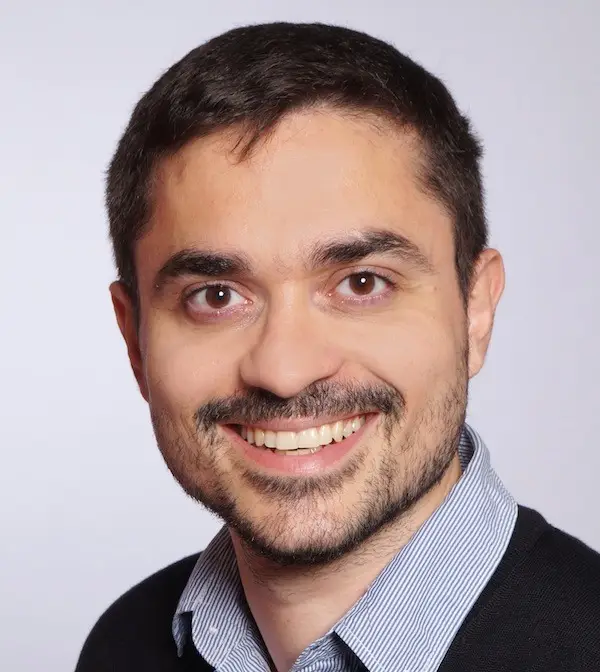
Manos Athanassoulis
Building Robust Data Stores: A Use-case on LSM Trees
Professor, Boston University | Director and Founder of the BU Data-intensive Systems and Computing Laboratory

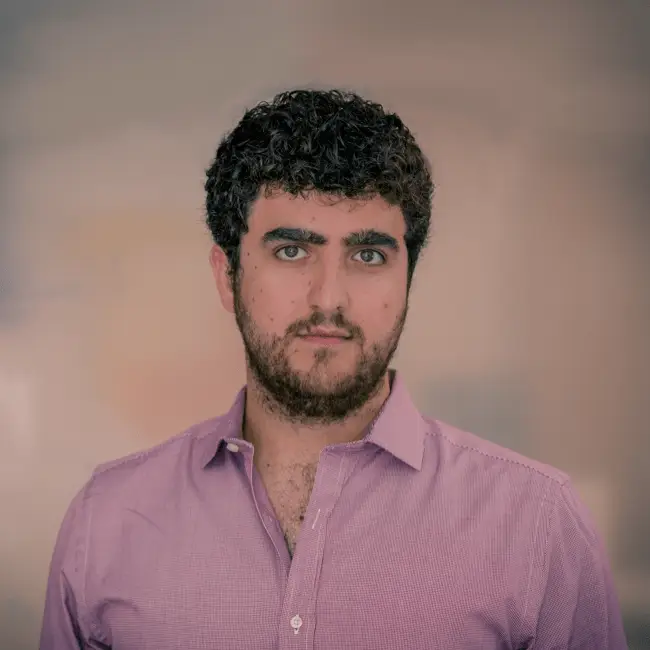

Ioannis Demertzis
Advancing Confidential Computing: Scalable Oblivious Computation for Next-Generation Private Systems, Databases, and AI
Any privacy-preserving computation on encrypted data that relies solely on encryption can leak significant information about the plaintext input through leakage-abuse attacks. Industrial approaches that support confidential computing through hardware enclaves are susceptible to side-channel attacks; however, hardware enclaves provide an affordable and low-cost solution for any privacy-preserving computation. Oblivious primitives are a robust cryptographic tool that can mitigate leakage-abuse and software side-channel attacks (when combined with hardware enclaves). Oblivious primitives find applications in various areas, including Signal’s contact discovery,
Anonymous Key Transparency, end-to-end encrypted email search, differential privacy in the shuffle model, large-scale software monitoring (e.g., Google’s Prochlo), private federated learning/computation (Apple’s Private Cloud Compute), LLM privacy, Google’s Privacy Sandbox, Google’s FLEDGE, Titan Security Key, Asylo, and broader confidential computing efforts. In this talk, we discuss recent hardware-enclave-based oblivious computing primitives and approaches that, for the first time, scale private computations to terabyte-sized inputs—far exceeding the previous 100MB–4GB range.
Assistant Professor, Univ. of California-Santa Cruz
Yannis Demertzis is an Assistant Professor at the Computer Science and Engineering Dept. of UC Santa Cruz. His research focuses on applied cryptography, security & privacy, and secure databases/systems. His goal is to bridge the gap between cryptography/security and real-world systems/databases by working in both areas; aiming to build cryptographic solutions and real systems that are simultaneously practical, efficient, and provably secure. Before joining UCSC, Yannis was a Post-Doctoral Researcher at the EECS Dept. of UC Berkeley working with Prof. Raluca Ada Popa. He received his Ph.D. from the ECE Dept. of the University of Maryland, advised by Prof. Charalampos Papamanthou. He obtained his ECE Diploma and M.Sc at the Technical University of Crete, under the supervision of Minos Garofalakis.
Yannis is the recipient of the ACM SIGSAC Doctoral Dissertation Award Runner-up, Distinguished Dissertation Award (University of Maryland), and the Symantec Research Labs Graduate Fellowship. He has also been at the Crypto Group of Visa Research, the Research Labs of Symantec, the Hong Kong University of Science and Technology, and the Microsoft Research Labs as a PhD research intern.
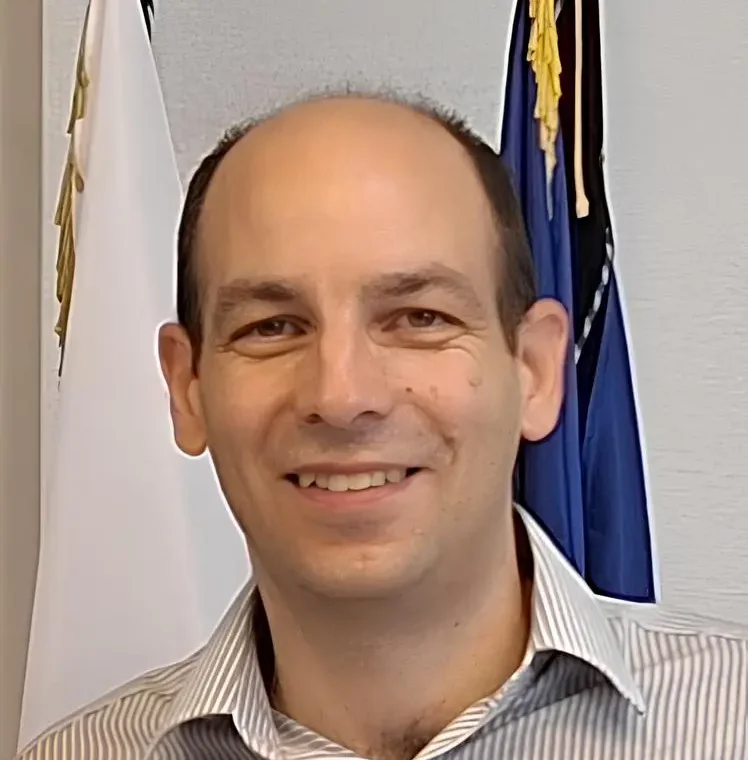
Christoforos Kachris
AI accelerators on Cloud and on Edge: Which one is the right one
GPUs, NPUs, FPGAs, AI Accelerators — there are several hardware platforms available to speed up your machine learning, AI and LLM applications. But which one is the right one for you? In this talk, we present a comparative overview of the most promising AI acceleration platforms, both on the cloud and at the edge. We will explore their strengths, limitations, cost-performance tradeoffs, and ideal use cases.
Whether you’re building low-latency inference systems at the edge or training large models in the cloud, this session will guide you through the key factors to consider when selecting the optimal hardware for your AI workload.
Professor, Univ. of West Attica | CEO & Co-founder, InAccel
Christoforos Kachris is an Assistant Professor in the Department of Electrical and Electronics Engineering at University of West Attica. He is the co-author of more than 90 peer-reviewed publications in the domain of reconfigurable computing and hardware accelerations and his work has been cited in more than 2900 papers. From 2018 till October 2023, he was the co-founder and Managing director of the InAccel startup company and he was leading the efforts for easy and efficient FPGA deployment in the cloud. InAccel received several awards for their innovative solutions like the Venture Impact Award in 2021 and the DeepBlue Cup International A.I. Science and Innovation Competition in 2019.
Before founding InAccel (2015-2018), Christoforos Kachris was the main initiator and Technical Project Manager at the NTUA/ICCS (Greece) of the VINEYARD (Versatile Integrated Accelerator-based Heterogeneous Data Centres), a EC-funded research project with a 6.3 Millins Euro Budget and 11 partners. Christoforos Kachris holds a Ph.D. from Delft University of Technology in Electrical and Computer Engineering (2007) and a M.Sc. and Diploma from Technical University in Crete (2001, 2003).

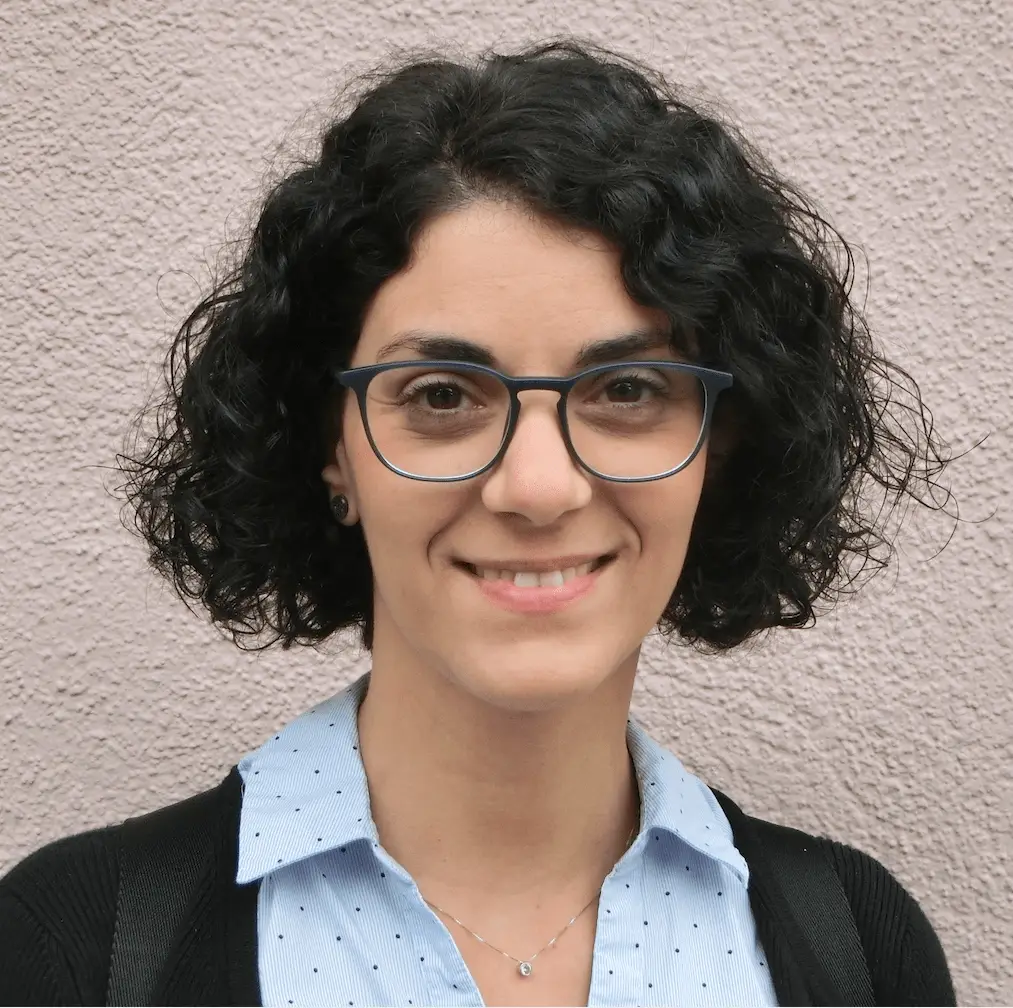

Vasiliki Kalavri
Towards adaptive and resource-efficient data stream processing systems
Streaming dataflow systems, like Apache Flink, have recently gained widespread adoption in industry and academia, while all major cloud providers offer data stream analytics as managed services. However, the increasing diversity of streaming applications and the availability of compute-enabled edge devices, hardware accelerators, and new cloud computing paradigms, is pushing existing dataflow systems to their limits. In this talk, I will describe our ongoing research towards addressing three major shortcomings of the streaming platforms status quo: (i) rigid, monolithic designs, inherited from MapReduce-style predecessors, (ii) homogeneous resource assumptions that hinder the deployment of emerging use cases, like machine learning pipelines and edge analytics, and (iii) notoriously complex to configure infrastructure.
I will present our recent research results on adaptive reconfiguration and resource-conscious optimizations for stream processing, such as workload-aware state management, task placement, and energy-performance tuning. Finally, I will share our vision to develop a novel fully-disaggregated streaming runtime architecture and discuss open challenges towards making data stream analytics accessible to domain experts, scientists, and small organizations.
Assistant Professor, Boston University | Co-leader of Complex Analytics and Scalable Processing (CASP) Systems Lab
Vasiliki (Vasia) Kalavri is an Assistant Professor of Computer Science at Boston University, where she co-leads the Complex Analytics and Scalable Processing (CASP) Systems lab. Vasia and her team enjoy doing research on multiple aspects of (distributed) data-centric systems. Recently, they have been working on self-managed systems for data stream processing, systems for scalable graph Machine Learning, and systems for secure collaborative analytics.
Before joining BU, Vasia was a postdoctoral researcher at ETH Zurich and received a joint PhD from KTH (Sweden) and UCLouvain (Belgium). Vasia has received various awards for her research, including the IBM Innovation Award for her PhD dissertation, the ETH Zurich Postdoctoral Fellowship, the ACM SIGMOD’23 Systems Award, and the NSF CAREER Award.
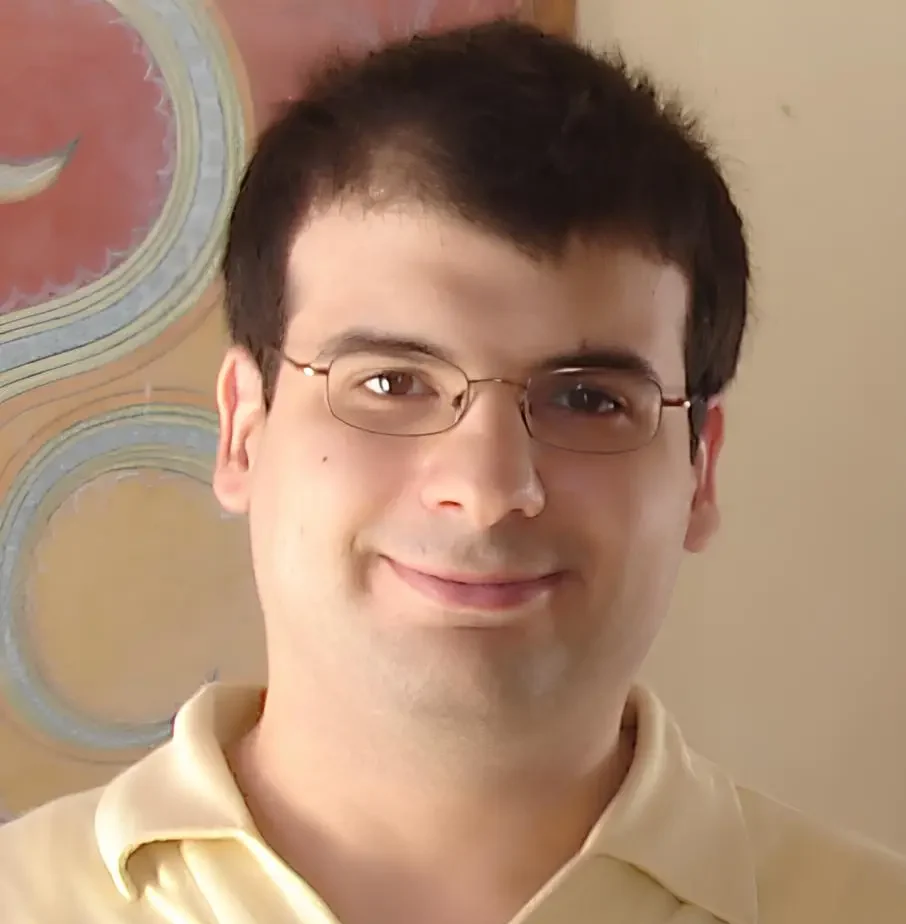
Evangelos Kalogerakis
Towards 4D-Aware Generative Models: Creating Dynamic, Interactive 3D Worlds with Generative AI
Generating high-quality 3D visual data, such as 3D models that can be integrated into interactive virtual environments or fabricated as real-world objects via 3D printing, remains a core challenge in generative AI. Existing 3D generative models are largely constrained to producing static scenes, lacking the ability to capture complex motions or simulate dynamic object interactions. In this talk, I will present a deep generative model that jointly synthesizes object shape, texture, and physics-aware material properties, enabling the creation of 3D assets that are ready for simulation in dynamic, interactive environments.
I will also discuss a number of applications, including text-to-4D generation, 3D reconstruction of physically plausible shapes from a single image, and image synthesis from 3D guidance and text prompts. This work pushes the boundaries of generative modeling from static 3D to dynamic, physically grounded 4D content, opening up new possibilities for virtual worlds, simulation, and design automation.
Associate Professor, Technical University of Crete | Lead Researcher, Technical University of Crete
Evangelos Kalogerakis’ research deals with the development of graphics+vision algorithms and techniques, empowered by Machine Learning and Artificial Intelligence, to help people to easily create and process representations of the 3D visual world. He is particularly interested in algorithms that generate 3D models of objects, scenes, animations, and intelligently process 3D scans, geometric data, collections of shapes, images, and video. His research has been supported by the European Research Council (ERC consolidator grant) and grants from the National Science Foundation (NSF). He is currently an Associate Professor at the School of Electrical and Computer Engineering at the Technical University of Crete, where, starting in 2025, he leads a research group focused on graphics and vision. Previously, he was a tenured Associate Professor at the College of Information and Computer Sciences at the University of Massachusetts Amherst, which he initially joined as an Assistant Professor in 2012. Before that, he was a postdoctoral researcher at Stanford University from 2010 to 2012. He earned his PhD from the University of Toronto in 2010. His PhD thesis introduced machine learning techniques for geometry processing. He has served as Area Chair in CVPR, ICCV, ECCV, NIPS and on technical paper committees for SIGGRAPH, SIGGRAPH ASIA, Eurographics, and the Symposium on Geometry Processing.
He has also served as an Associate Editor in the Editorial Boards of IEEE Transactions on Pattern Analysis and Machine Intelligence (TPAMI) and IEEE Transactions on Visualization & Computer Graphics (TVCG). He co-chaired Eurographics 2024. He was listed as one of the 100 most cited computer graphics scholars in the world between 2010-2020 by the Tsinghua’s AMiner academic network.

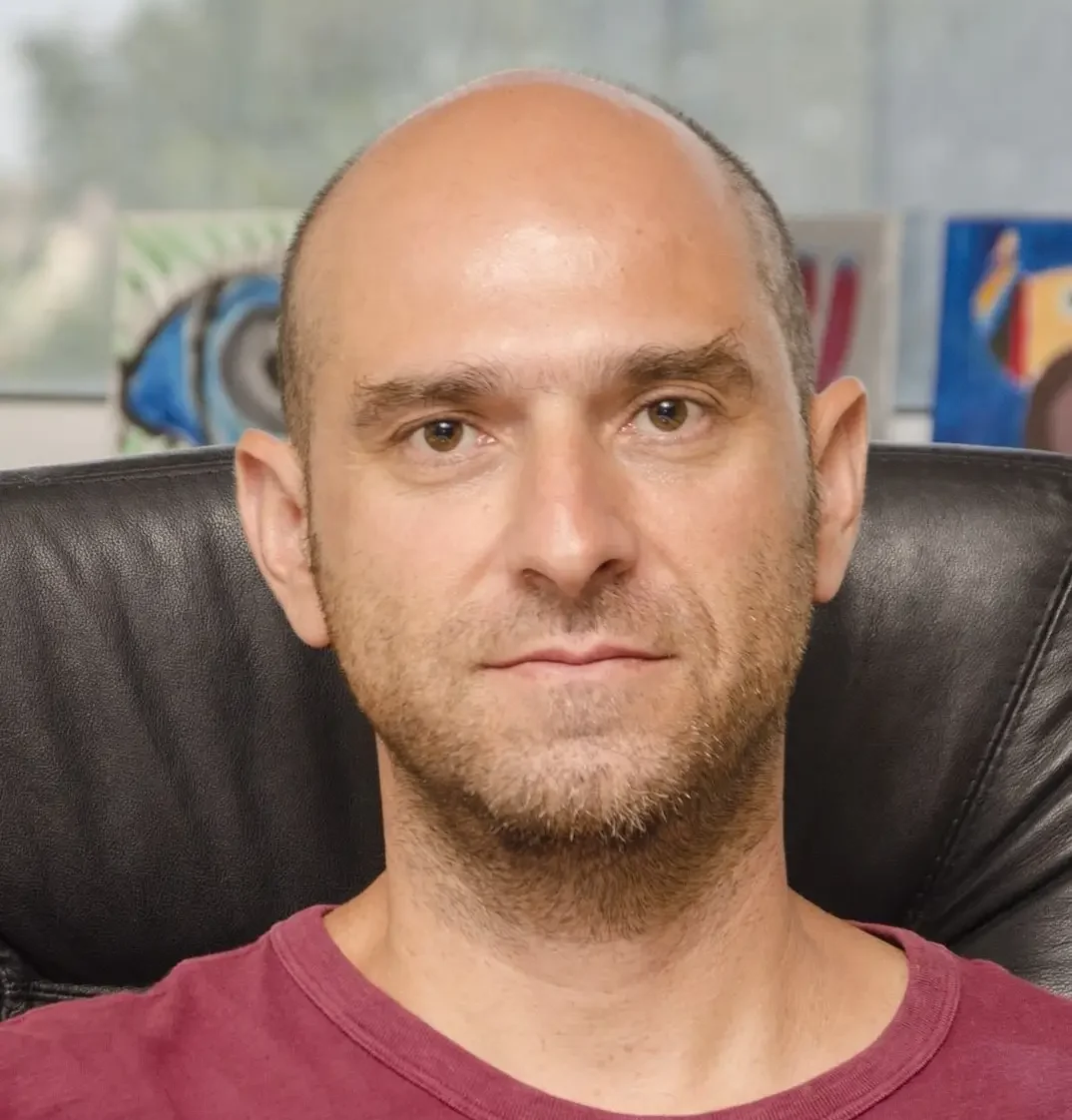

Nikos Mamoulis
In-memory access methods for multidimensional data
Multidimensional data is ubiquitous, appearing both in static form and as dynamically collected streams from sources such as sensors and satellites. At the same time, we are witnessing significant growth in the size of main memory available on commodity machines. This trend calls for the development of new data structures tailored to efficiently handle multidimensional data. In this talk, I will present our recent work on access methods designed for various types of multidimensional data, including points and ranges. Our approach focuses on maximizing the throughput of selection queries by minimizing comparisons, enhancing opportunities for parallelism, and reducing memory access latency.
Additionally, I will briefly discuss our research on multidimensional adaptive indices, which incrementally construct data structures on-demand based on query patterns. Finally, I will explore emerging trends in indexing and query optimization for multidimensional data, highlighting key challenges and potential directions for future research.
Professor, University of Ioannina | Lead Researcher, Archimedes Research Unit of Athena RC.
Nikos Mamoulis is a professor at the Department of Computer Science and Engineering, University of Ioannina (UoI), and a lead researcher at Archimedes Research Unit of Athena RC. Before joining UoI, he was a faculty member at the Department of Computer Science, University of Hong Kong. He holds a BEng degree in computer engineering and informatics from the University of Patras, Greece, and a PhD in computer science in from HKUST. His research focuses on the management and mining of complex data types. His work on spatio-temporal data management has received best paper and test-of-time awards.
He is the recipient of a Marie Curie fellowship (2014-2018) and he has been granted over 15 research projects as a PI in Hong Kong and Greece. He is a senior ACM member. He has participated in many organization boards of international conferences and has been a PC member in more than 120 program committees of top conferences in database research (e.g., SIGMOD, VLDB, ICDE, EDBT, KDD). He has been an associate editor and an editorial board member in several journals including TKDE, VLDBJ, KAIS, Geoinformatica, and ACM TSAS.

Themis Palpanas
Scalable Vector Analytics: A Story of Twists and Turns
Similarity search in high-dimensional data spaces was a relevant and challenging data management problem in the early 1970s, when the first solutions to this problem were proposed. Today, fifty years later, we can safely say that the exact same problem is more relevant (from Time Series Management Systems to Vector Databases) and challenging than ever. Very large amounts of high-dimensional data are now omnipresent (ranging from traditional multidimensional data to time series and deep
embeddings), and the performance requirements (i.e., response-time and accuracy) of a variety of applications that need to process and analyze these data have become very stringent and demanding. In these past fifty years, high-dimensional similarity search has been studied in its many flavors. Similarity search algorithms for exact and approximate, one-off and progressive query answering. Approximate algorithms with and without (deterministic or probabilistic) quality guarantees.
Solutions for on-disk and in-memory data, static and streaming data. Approaches based on multidimensional space-partitioning and metric trees, random projections and locality-sensitive hashing (LSH), product quantization (PQ) and inverted files, k-nearest neighbor graphs and optimized linear scans. Surprisingly, the work on data-series (or time-series) similarity search has recently been shown to achieve the state-of-the-art performance for several variations of the problem, on both time-series and general high-dimensional vector data. In this talk, we will touch upon the different aspects of this interesting story, present some of the state-of-the-art solutions, and discuss open research directions.
Professor, Universite Paris Cite | Research Director, Data Intelligence Institute of Paris (diiP) | Research Director, data management group, diNo.
Themis Palpanas is an elected Senior Fellow of the French University Institute (IUF), a distinction that recognizes excellence across all academic disciplines, and Distinguished Professor of computer science
at the University Paris Cite (France), where he is director of the Data Intelligence Institute of Paris (diiP), and director of the data management group, diNo. He received the BS degree from the National Technical University of Athens, Greece, and the MSc and PhD degrees from the University of Toronto, Canada. He has previously held positions at the University of California at Riverside, University of Trento, and at IBM T.J. Watson Research Center, and visited Microsoft Research, and the IBM Almaden Research Center.
His interests include problems related to data science (big data analytics and machine learning applications). He is the author of 15 patents. He is the recipient of 3 Best Paper awards, and the IBM Shared University Research (SUR) Award. His service includes the VLDB Endowment Board of Trustees (2018-2023), Editor-in-Chief for PVLDB Journal (2024-2025) and BDR Journal (2016- 2021), PC Chair for IEEE BigData 2023 and ICDE 2023 Industry and Applications Track, General Chair for VLDB 2013, Associate Editor for the TKDE Journal (2014-2020), and Research PC Vice Chair for ICDE 2020.



Charalampos (Babis) Papamanthou
DeepProve: Fast & Scalable Verifiable Inference for AI Models
As AI systems become increasingly embedded in our daily lives, ensuring their trustworthiness and transparency is paramount. In critical sectors such as finance, healthcare, and defense, the integrity of AI-driven decisions is not just desirable but essential. The opaque nature of many AI models raises concerns about the correctness of their outputs and the potential for tampering or misuse. Without mechanisms to verify that AI decisions are executed correctly and remain unaltered, stakeholders face significant risks. DeepProve addresses these challenges by enabling verifiable AI inference. Our library allows stakeholders to cryptographically confirm that a neural network was executed as intended, ensuring both the correctness of the computation and the integrity of the input data, all without exposing sensitive information.
Unlike existing solutions, DeepProve achieves proof generation speeds that are two orders of magnitude faster, making it suitable for real-world applications where performance and privacy are critical. Looking ahead, DeepProve is designed with extensibility in mind. Future developments aim to incorporate mechanisms that preserve the privacy of user inputs during the verification process, further enhancing the confidentiality and security of AI operations. By integrating DeepProve into AI systems, organizations can enhance trust, ensure compliance, and uphold the highest standards of data integrity and security.
Associate Professor, Yale University | Research Director, Yale Applied Cryptography Laboratory
Charalampos Papamanthou is an Associate Professor of Computer Science at Yale University, where he co-directs the Yale Applied Cryptography Laboratory. He also serves as Chief Scientist at Lagrange Labs, a startup advancing systems and applications for zero-knowledge proofs. Prior to joining Yale, he was Director of the Maryland Cybersecurity Center (MC2) and Associate Professor of Electrical and Computer Engineering at the University of Maryland, College Park, which he joined in 2013 after completing a postdoc at UC Berkeley.
Papamanthou’s research focuses on applied cryptography and computer security, with a particular emphasis on systems, theory, and technologies for secure and private cloud computing. His contributions to the field have been widely recognized. In 2022, he received the ACM CCS Test-of-Time Award for his work on searchable encryption. He is also the recipient of numerous honors, including the NSF CAREER Award, the JP Morgan Faculty Research Award, the Google Faculty Research Award, the Yahoo! Faculty Engagement Award, two NetApp Faculty Fellowships, the UMD Invention of the Year Award, the Jimmy Lin Award for Invention, and the George Corcoran Award for Excellence in Teaching.
He was a finalist for the 2020 Facebook Privacy Research Award. His research has been supported by both government agencies (NSF, NIST, NSA) and industry leaders (including JP Morgan, Google, Yahoo!, NetApp, VMware, Amazon, Algorand, Ergo, Ethereum, and Protocol Labs). Papamanthou holds a PhD in Computer Science from Brown University (2011) and an MSc from the University of Crete (2005), where he was affiliated with ICS-FORTH. His work, which spans applied and theoretical cryptography, systems and database security, graph algorithms, and operations research, has been cited over 14,500 times.
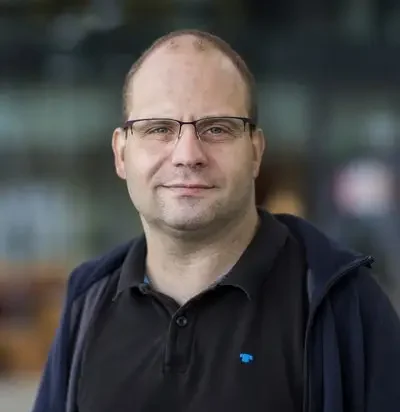
Odysseas Papapetrou
Supporting complex analytics on fast-paced data streams: sketches to the rescue
In today’s connected world, data streams are omnipresent. They are generated by IoT devices, computers and sensors, our cars and handheld devices, even our household appliances. Analyzing these streams is increasingly critical across many domains. In this talk, I will present the key challenges of stream analytics and show how a family of data structures, called sketches, can help address them. I will then introduce OmniSketch, a recent advancement toward general-purpose stream analytics. Finally, I will briefly discuss future directions, touching on the design and development of a more general framework, and further challenges at the intersection with AI.
Assistant Professor, Eindhoven University of Technology
Odysseas Papapetrou is Assistant Professor at Eindhoven University of Technology. He holds degrees from the University of Cyprus, Saarland University (with a Max Planck Institute scholarship), and Leibniz University of Hannover. He worked as a researcher at the Technical University of Crete (2011-2016), an adjunct lecturer at the Open University of Cyprus (2012-2013), and a researcher and Marie Skłodowska-Curie EPFL Fellow at EPFL (2016-2018). Odysseas’ research focuses on Big Data analytics, with a particular emphasis on streaming data. His work has appeared in the top data management venues (VLDB, SIGMOD, ICDE, TKDE, TODS). Odysseas serves as a regular PC member and reviewer for major data management conferences and journals. In 2024, he served as Publications Chair for ICDE, and co-initiated/co-chaired the MulTiSA workshop.
He has received several distinctions, including a SIGMOD Research Highlight Award (2025), a Best Research Paper Award (VLDB’24), a “Best of” conference paper selection (SIGMOD’16), invited journal articles, and distinguished/honorable reviewer awards (SIGMOD, VLDB, EDBT).



John Paparrizos
Next-Generation of Big Multi-Dimensional Data Analytics
Today, automated processes, Internet‑of‑Things deployments, and Web and mobile applications generate an overwhelming amount of high‑dimensional data. Meanwhile, computational resources remain limited, and advances in machine learning (ML) create a pressing need to support increasingly expensive and complex analytical tasks. Unfortunately, traditional data management techniques offer limited support for high‑dimensional data, ML tasks, and adaptation to data properties, often resulting in reduced performance. Similarly, due to the difficulty of providing invariances to specific data distortions, applications often resort to inadequate ML methods, reducing their effectiveness. In this talk, I will discuss how we can address the lack of task‑aware and data‑driven adaptations in data management and ML methods.
Specifically, I will present two solutions for (i) data representations and (ii) computational methods using techniques to exploit similarities, shapes, densities, and distributions in data. Motivated by the ubiquity of high-dimensional time series, I will first present a method for anomaly detection in streaming data to account for distribution drifts. Then, I will discuss a variance-aware quantization method for indexing high-dimensional data that enables similarity search queries at scale. In both examples, the proposed methods substantially improve performance and accuracy, demonstrating the benefit of designing task-aware and data-driven solutions for large-scale data science applications
Assistant Professor, Ohio State University | Research Leader, DATUM Lab
John Paparrizos is an assistant professor at The Ohio State University, leading The DATUM Lab. He is also affiliated with Aristotle University of Thessaloniki, Greece. His research in data analytics, data science, and applied machine learning focuses on adaptive solutions for managing and analyzing structured and unstructured data to enable the next generation of data-intensive and machine-learning applications. His doctoral work was recognized at the 2019 ACM SIGKDD Doctoral Dissertation Award competition and, recently, John received the 2023 IEEE TCDE Rising Star Award. He is a recipient of multiple other distinctions, including the 2025 ACM SIGMOD Test-of-Time Award, ACM SIGMOD Research Highlight Award, and NetApp Faculty Award.
John’s work has been featured in popular media outlets, including The New York Times, Washington Post, Guardian, and MIT Technology Review. His ideas have been widely adopted across scientific areas, Fortune 100-500 companies (e.g., Exelon, Nokia, and many financial firms), and organizations such as the European Space Agency. John completed his Ph.D. at Columbia University and received postdoctoral training at the University of Chicago.
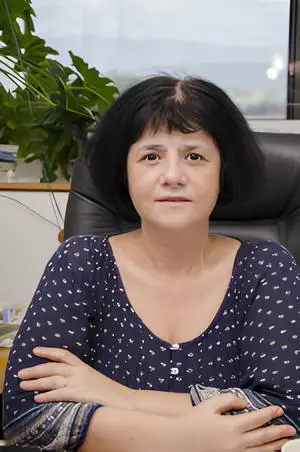
Evaggelia Pitoura
Fairness, Explainability and Their Interplay – Graph Analytics
As data-driven AI enhanced algorithms are deployed in domains that impact human lives, embedding responsibility into their design and deployment is essential. In this talk, I will present results of our work on two key dimensions of responsible AI, namely fairness and explainability, and their interrelationship. In addition, I will share insights from our ongoing research on responsibility aspects in Retrieval-Augmented Generation (RAG) pipelines. Finally, I will present briefly some of our results on a different line of our research that focuses on temporal graph analytics.
Professor, University of Ioannina | Lead Researcher, Archimedes Research Unit of Athena RC
Evaggelia Pitoura is a Professor at the Department of Computer Science and Engineering at the University of Ioannina and a Lead Researcher at Archimedes Research Unit of Athena RC, Greece. She holds a BEng degree from the University of Patras, Greece, and an MS and PhD from Purdue University, USA. Her current research interests focus on two primary areas: responsible data management, with a focus on fairness, explainability, and their interplay; and on graph exploration and analysis.
For her work, he has received best paper awards, a Marie Currie Fellowship and two Recognition of Service Awards from ACM. She is an ACM senior member, chair of the Greek ACM-W event steering committee, chair of the Hellenic ACM SIGMOD chapter, and member of the sectorial scientific council of Greece National Council for Research, Technology and Innovation.



Yannis Velegrakis
Sustainability goes through Data Reduction
Our ability to collect data is rapidly surpassing our ability to store it. As a result, organisations are faced with difficult decisions about what data to retain, and in what form, in order to meet their business goals while complying with storage restrictions, privacy requirements, and other related business constraints. This is typically known as data reduction. But even if there is enough storage space, organisations may decide to eliminate parts of the data. Data Quality is an important factor since good quality affects significantly the outcome of any machine learning or AI models that is based on it (garbage in garbage out).
Determining this quality is challenging since it does not only depend on the values of the data themselves but also on their intended use. In this talk we highlight the need to be able to valuate correctly different parts of the data, to reduce space, to improve quality and to keep only what matters, i.e., what is relevant, important and useful. We discuss what research has offered so far and what future opportunities exist.
Professor, Utrecht University | Research Head, Data Intensive Systems Group | Lead Researcher, Archimedes Research Unit of Athena RC.
Yannis Velegrakis (M) is a professor of Computer Science at Utrecht University (Netherlands) where he holds the chair on Very Large Data Management, is the head of the Data Intensive Systems Group, and leads the Master’s programme in Data Science. His research area of expertise includes Data Preparation and Curation, Data Quality, Big Data Management, Knowledge Engineering, Graph Management, and Highly Heterogeneous Information Integration. He holds a PhD degree in Computer Science from the University of Toronto. In the past, he has been a professor at the University of Trento, and previously a researcher at the AT&T Research Labs.
He has spent time for research work at IBM Almaden Research Center, the Huawei European Research Center in Munich, the Center of Advanced Studies of the IBM Toronto Lab, the University of California, Santa-Cruz, and the University of Paris-Saclay. He has been the general chair of VLDB 2013 and ICDE 2024, the PC Chair of EDBT 2021, and area chair in multiple VLDB, SIGMOD, ICDE, and EDBT Conferences. He is currently serving as president on the board of EDBT Association, as a member on the VLDB Board of Trustees, and the board of the SIKS Research School, and as associate editor for Systems on the SIGMOD Record editorial team.

Constantinos Venetsanopoulos
From Data Management to AI and from Athens to Silicon Valley
This is the condensed story of Arrikto, which started in Athens, and ended up in Silicon Valley, with HPE opening up an R&D department in Greece. We will discuss how we bumped into data management problems while designing the first large scale public IaaS cloud in Greece, started Arrikto to solve these problems from scratch, identified similar problems in AI/ML infrastructure very early, and how we ended up taking over the biggest open source MLOps project from Google, serving Fortune 100 customers, and becoming part of HPE.
Director of Product, Hewlett Packard Enterprise (HPE) | Founder and CEO, Arrikto MLOps
Constantinos Venetsanopoulos is a Director of Product at Hewlett Packard Enterprise (HPE), working with product, engineering, customer, and partner teams to build and expand the reach of HPE’s new Private Cloud AI product suite. Previously, he was a Founder & CEO of Arrikto, the leading enterprise Kubeflow vendor, providing a complete Kubernetes-native MLOPs platform with a strong focus on data management, to large enterprise customers.
